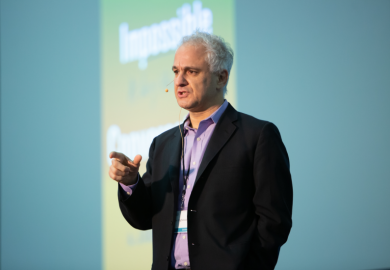In this lucid and provocative little book, Colin McGinn examines five logical concepts. Their orthodox treatment in the Russell-Quine tradition is often criticised for clashing with our speech and with the metaphysical facts. As a logical realist, McGinn takes logical properties and facts to be part of an independent realm, not reducible to the physical or the mental. His book is clear, direct, and well argued.
Identity is a single, indefinable relation. Identity relates each object (including sets, times, properties and fictional objects) to itself and obeys the indiscernibility of identicals. Its proper form is "x = y" - not "x is the same F as y"; those who think otherwise need to sharpen the singular terms in their identity statements (for example, to use "this frog" or "this collection of atoms" instead of just "this").
Existence is an indefinable property that can be predicated of individual entities (as in "I exist" or "Superman does not exist"). Existence is not properly expressed by the "for some x" quantifier, which also can be used to translate "Some superheros are fictional and do not exist"; to claim existence of some superheros, we have to say "For some x, x exists and x is a superhero."
Predicates are singular terms that refer to properties. So "red", instead of having multiple reference to all red objects, simply refers to the property of being red. McGinn sees this as more natural, and as better epistemically (since we are acquainted with redness but not with all red objects) and metaphysically (since facts typically involve objects and properties).
Necessity is a manner in which an object has a property. So necessity is a copula modifier (not a sentence operator or a predicate modifier); its proper form is "Socrates is-necessarily bald". Necessary truths are accommodated through "Proposition p is-necessarily true". Necessity is non-empirical (and thus objectionably queer to some philosophers) - but objective and known a priori.
Truth is a property of propositions - a property that bridges the world of propositions to the world of objects. The truth of a proposition has implications about what reality is like: if "snow is white" is true, then snow is white. But "true" is not redundant. Asserting "p is true" is stronger than just asserting p, because the former has a different logical form and different ontological commitments (since it refers to a proposition and predicates of it the property of being true). There also is the problem of truth-value gaps; an ethical emotivist may affirm "Pleasure is good" but deny that "Pleasure is good" is true.
McGinn has strange views about impossible objects. He tells us that round squares exist but could not be actual; I am confused about what this means. It seems more plausible to hold that "round square" does not refer to any entities. "Round squares do not exist", instead of denying actuality to entities called "round squares", just claims that no existing entities are literally both round and square. Apart from this, McGinn's book is generally very sensible.
Harry Gensler is professor of philosophy, John Carroll University, Cleveland, United States.
Logical Properties: Identity, Existence, Predication, Necessity, Truth
Author - Colin McGinn
ISBN - 0 19 924181 3
Publisher - Clarendon Press
Price - £17.99
Pages - 114
Register to continue
Why register?
- Registration is free and only takes a moment
- Once registered, you can read 3 articles a month
- Sign up for our newsletter
Subscribe
Or subscribe for unlimited access to:
- Unlimited access to news, views, insights & reviews
- Digital editions
- Digital access to THE’s university and college rankings analysis
Already registered or a current subscriber? Login



